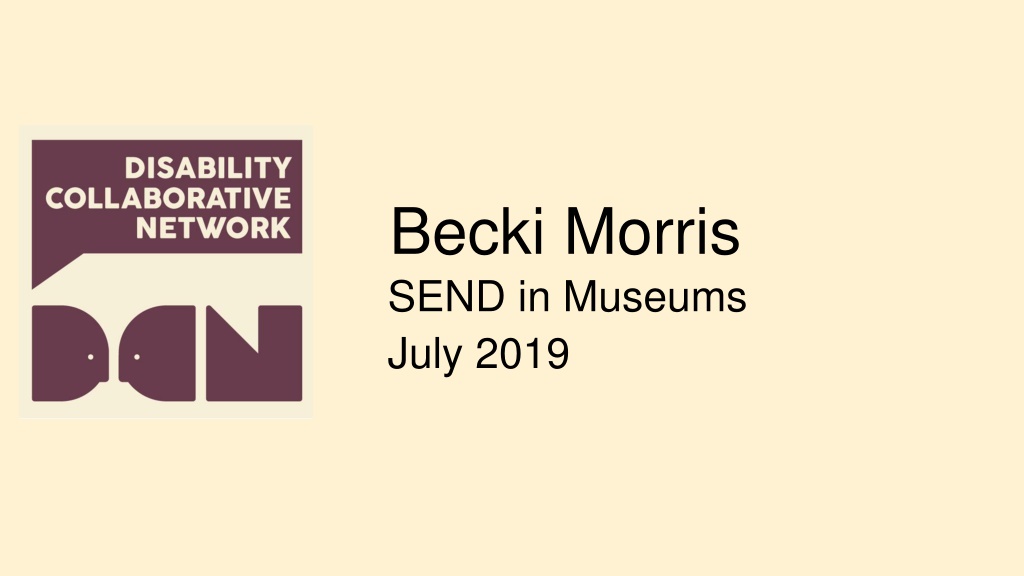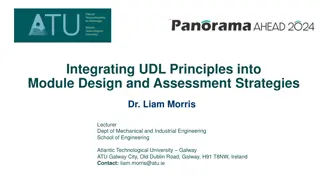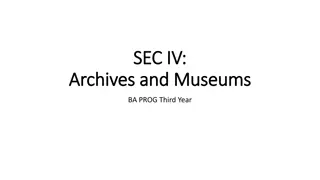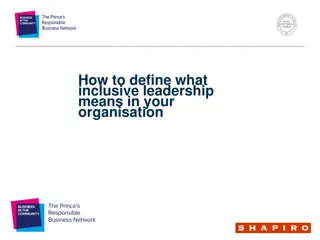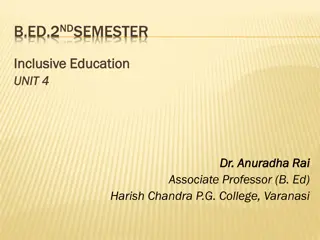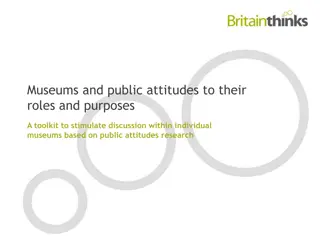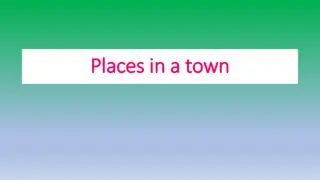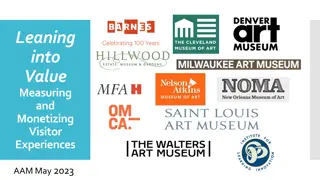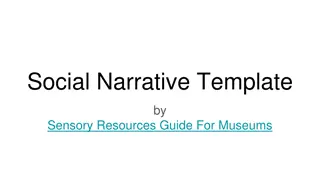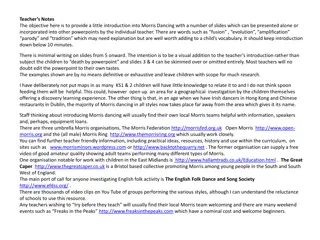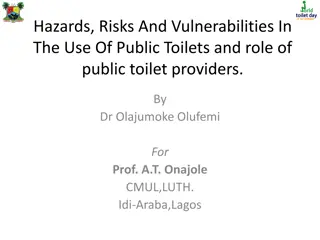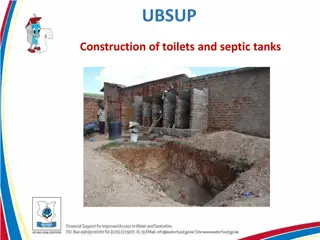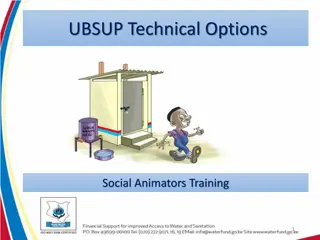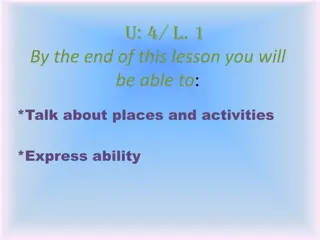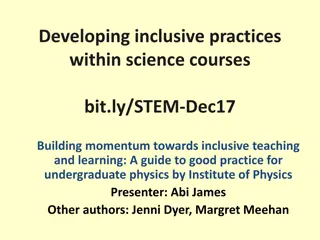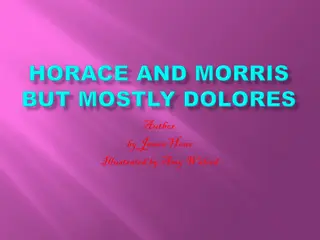Supporting Inclusive Practices in Museums: Becki Morris, DCN, and Changing Places Toilets
Becki Morris, involved in SEND in Museums, offers guidance on supporting individuals with disabilities in public spaces. The Disability Collaborative Network (DCN) provides resources, support, and key actions for inclusive practices in the Heritage Sector. Discover the importance of Changing Places Toilets in creating accessible environments for disabled individuals. Explore how DCN can assist organizations with compliance, research, and workforce initiatives to promote intersectional inclusion. Benefit from free online resources, newsletters, and collaborative opportunities to drive positive changes in disability and dyslexia advocacy.
Download Presentation

Please find below an Image/Link to download the presentation.
The content on the website is provided AS IS for your information and personal use only. It may not be sold, licensed, or shared on other websites without obtaining consent from the author. Download presentation by click this link. If you encounter any issues during the download, it is possible that the publisher has removed the file from their server.
E N D
Presentation Transcript
Becki Morris SEND in Museums July 2019
1. DCN in relation to SEND 2. What we can do to support you 3. Authentic Voices in the Heritage Sector 4. Changing Places Toilets
Experience: Pan Disability: Social and Economic Barriers to public spaces Trustee/Non-Executive Director of AchieveAbility Contribution to ACAS Employer Guide to Neurodiversity Steering Committee of Dyslexia Adult Network Director of DCN in Museums and Heritage (inclusive practice)
How DCN can support you and your organisation: Free online resources and newsletter Going forward: compliance to systematic, intersectional inclusion Developmental, acquired, temporary disability All Parliamentary Party Membership: Disability and Dyslexia Positive action through collaboration
How DCN can support you and your organisation: Specific action on Key Priorities (Changing Places, workforce and cross-profile neurodiversity research) Key actions on risk to the Heritage Sector Low cost inclusive practice Key Research
How DCN can support you and your organisation: The Hive, Jewellery Quarter Birmingham Birmingham Museums Trust Middleton Hall, nr Tamworth National Trust School of Museum Studies, Leicester University TORCH Post Graduate Summer School, Oxford University Financial Sector City Centre Business Management
What are Changing Places toilets? A height adjustable changing bench and sink A tracking hoist system or mobile hoist if this is not possible Space (12 sqm: 3m wide and 4m long, with a ceiling height of 2.4m) For the disabled person, up to two carers and their equipment A centrally placed toilet with room on either side for the carers A privacy screen or curtain A safe and clean environment A non slip floor Wide tear off paper roll to cover the bench A large waste bin for disposable pads
Who uses Changing Places toilets? People with profound and multiple learning difficulties. Muscle wasting conditions, motor neurone disease, multiple sclerosis and cerebral palsy People who have suffered major physical trauma, head injury or stroke Some older people.
Or People who love art, history, science and dinosaurs
For the organisation Going up: opportunities Boost revenue in your caf and restaurants SEND school groups Audience groups (non-users) Events attendance Employment/volunteer opps Reputation as an inclusive place
But this is the situation. Top 10 most visited museums (ALVA 2018) (No 1 has 5,868,562, No 10 has 2,549,833 visitors per year) 1 has a registered Changing Places toilet. 29 museums (inc. Tate Modern and Liverpool) have registered Changing Places toilets, 17 located specifically in England.
Government Consultation 2019 Changing Places Toilets should be provided in the following new large buildings commonly used by the public or where such a building undergoes an extension, material alteration or change of use: Cultural centres, including museums, concert halls, art galleries and faith centres with over 300,000 visitors expected per year. https://www.gov.uk/government/consultations/changing-places-toilets
Government Consultation 2019 Closes 21 July 2019 Mobiloo Funding streams and consultation
Supporting our workforce Intersectional inclusive practice for the workforce Access to Work Well Being and work/life balance Cross profile neurodiversity
Neurodiversity overlaps with people having more than one label. 60% are dyspraxic and dyslexic 37% are dyslexic and dyspraxic 29% are autistic and dyspraxic 28% are autistic and dyslexic 12% are dyslexic and dyscalculic Source: WAC Report 2018
Keep in touch and work with us Twitter: @museumDCN Email: info@musedcn.org.uk Call: 07455 896213
